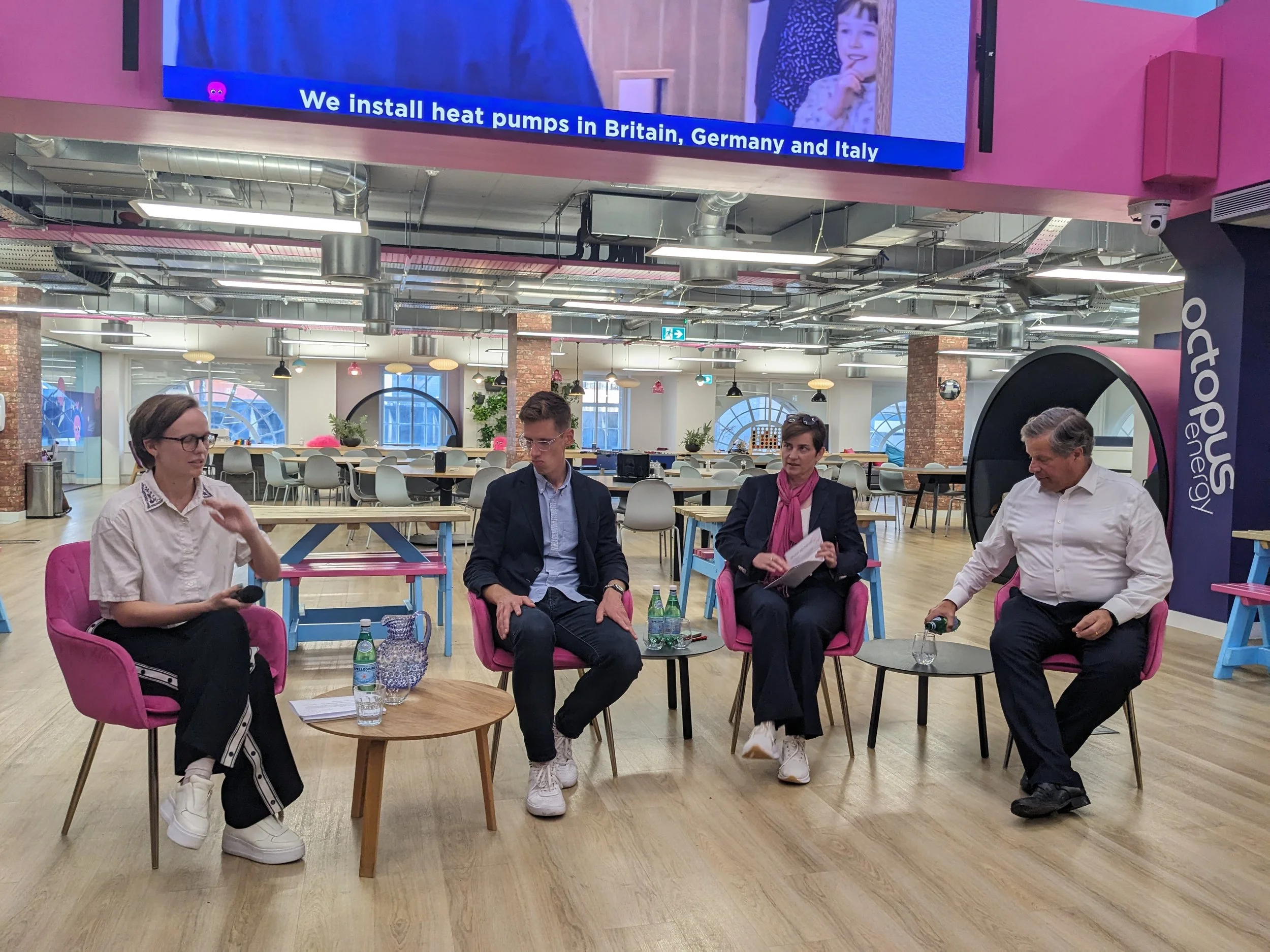Cultivating Green Skills in the UK
Olivia Rudgard moderating the panel of Matt Ilic, Sophie Lambin and Julian Critchlow.
September 2024
Featuring: Julian Critchlow, Advisory Partner, Bain & Company; Sophie Lambin, CEO, Kite Insights; Mat Ilic, Co-founder and CEO, Greenworkx and moderated by Olivia Rudgard, Green Reporter, Bloomberg
In a dynamic panel discussion, three prominent leaders in green skills highlighted the urgent need to address the UK’s green reskilling challenge as the nation transitions to a low-carbon economy.
Julian Critchlow, a partner at Bain & Company, shared research that shows that 4 million UK workers will need to be retrained by 2035 - far more than estimated - with a focus on energy, transport, and home heating sectors. For this to happen the UK must overcome the substantial mismatches from where we are now in terms of where these jobs are located, what skills we need to do them, how fast they need to happen and the bottlenecks that this pace will cause. An enormous opportunity, but requiring strong partnerships between government and businesses to drive reskilling programs and leverage opportunities in emerging green sectors.
Sophie Lambin, co-founder of Kite Insights expanded on the idea that climate change affects every industry. She advocated for businesses to integrate climate-conscious decision-making into all job roles, not just those traditionally seen as “green.” She also pointed out that fostering climate literacy across all sectors would empower employees to contribute to their organisation's sustainability goals, regardless of their role, as many felt that they lacked agency and knowledge to make change in their current employment.
Mat Ilic, CEO of Greenworkx, provided a practical perspective on the reskilling infrastructure required to meet these demands. Greenworkx focuses on retraining programs and partnerships with businesses to prepare workers for green jobs. Ilic stressed the need for accessible and scalable training solutions, particularly for workers in industries most affected by the transition, such as manufacturing and oil & gas to ensure there is a just transition for workers as well as consumers.
All agreed, the audience too, that closing the green skills gap is not just about creating new jobs - especially for young people - but about fundamentally reshaping the UK's workforce.

